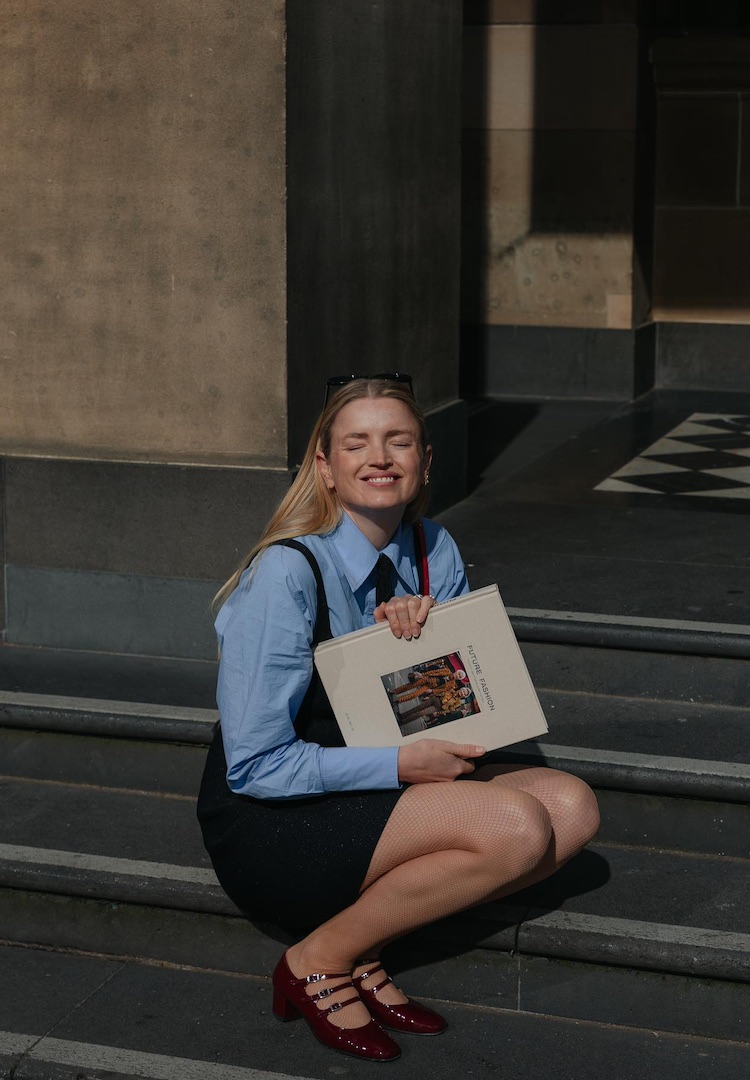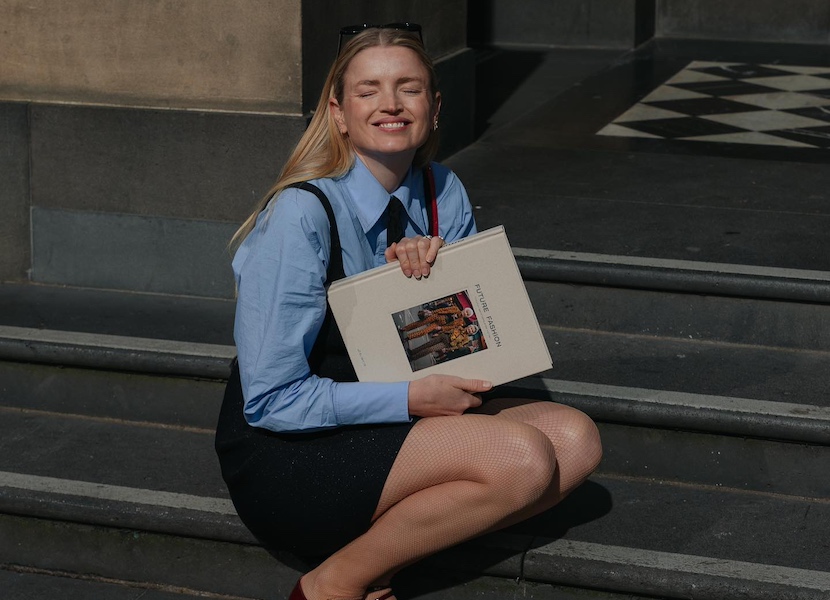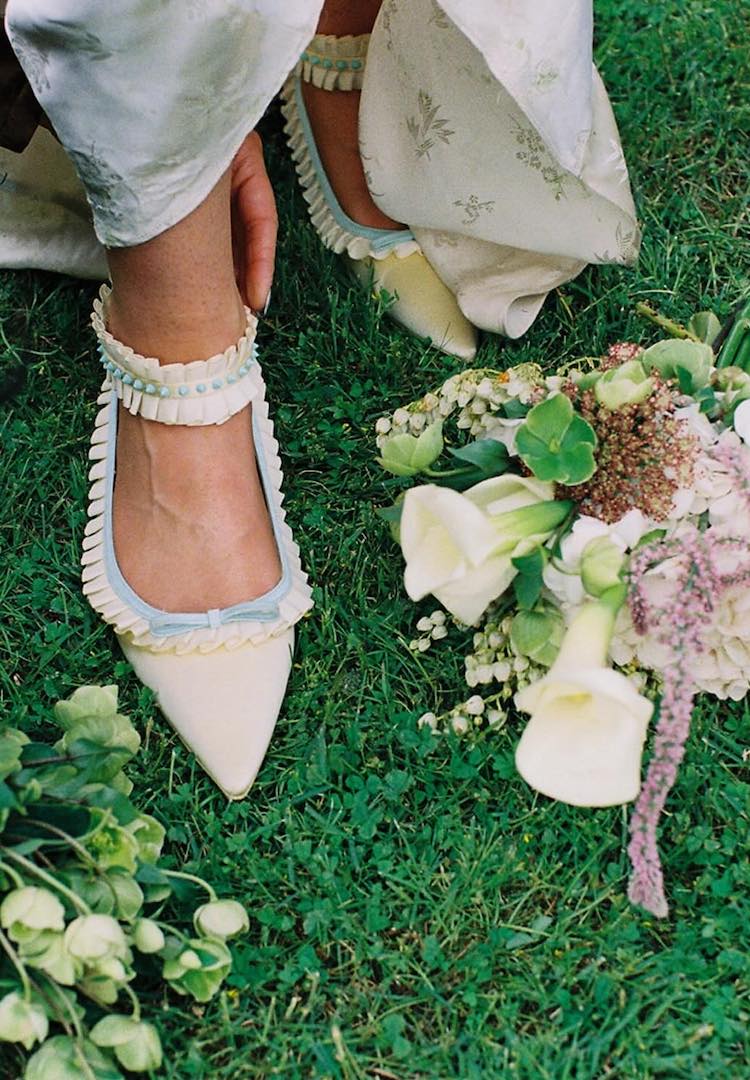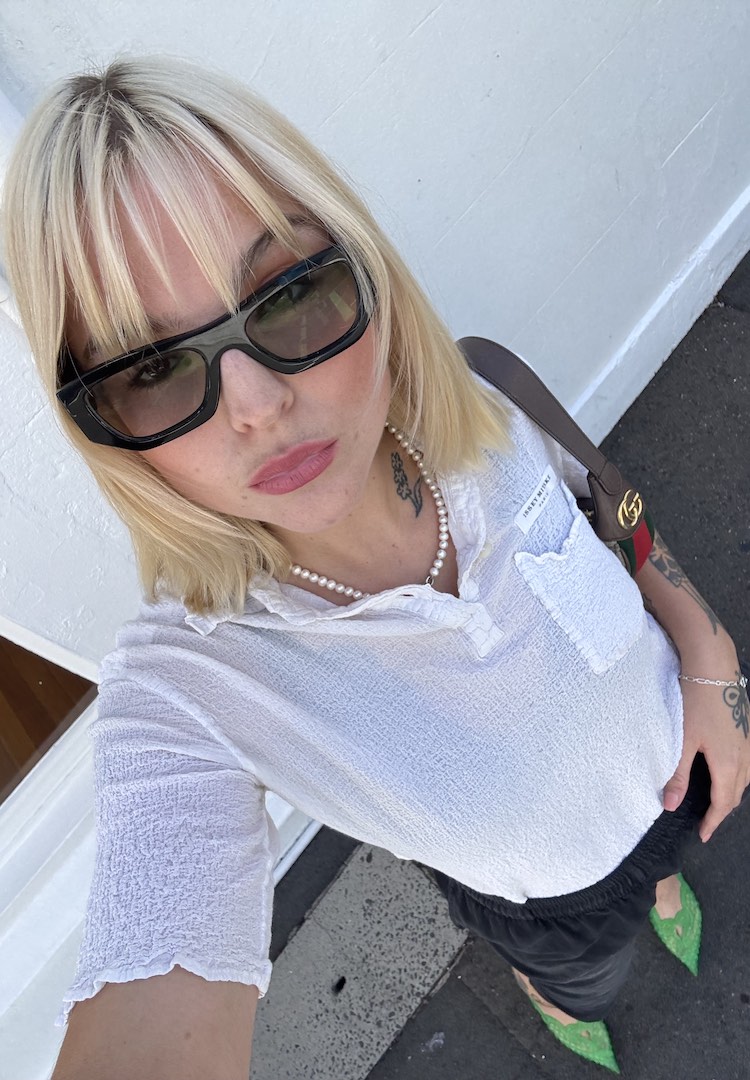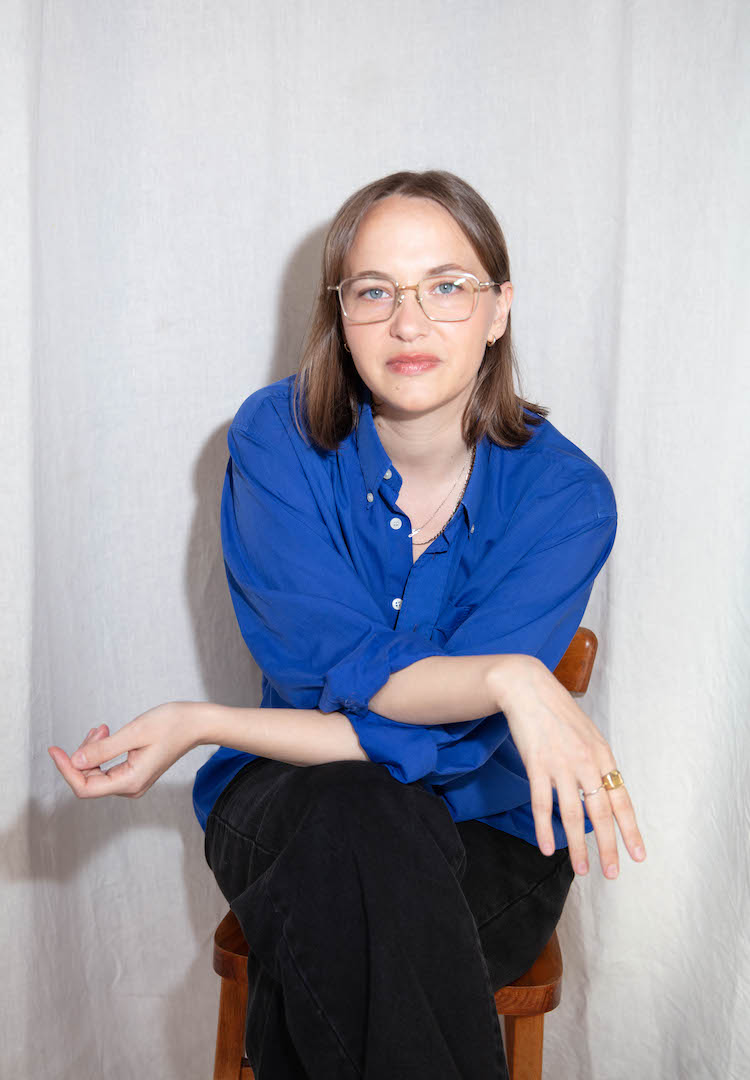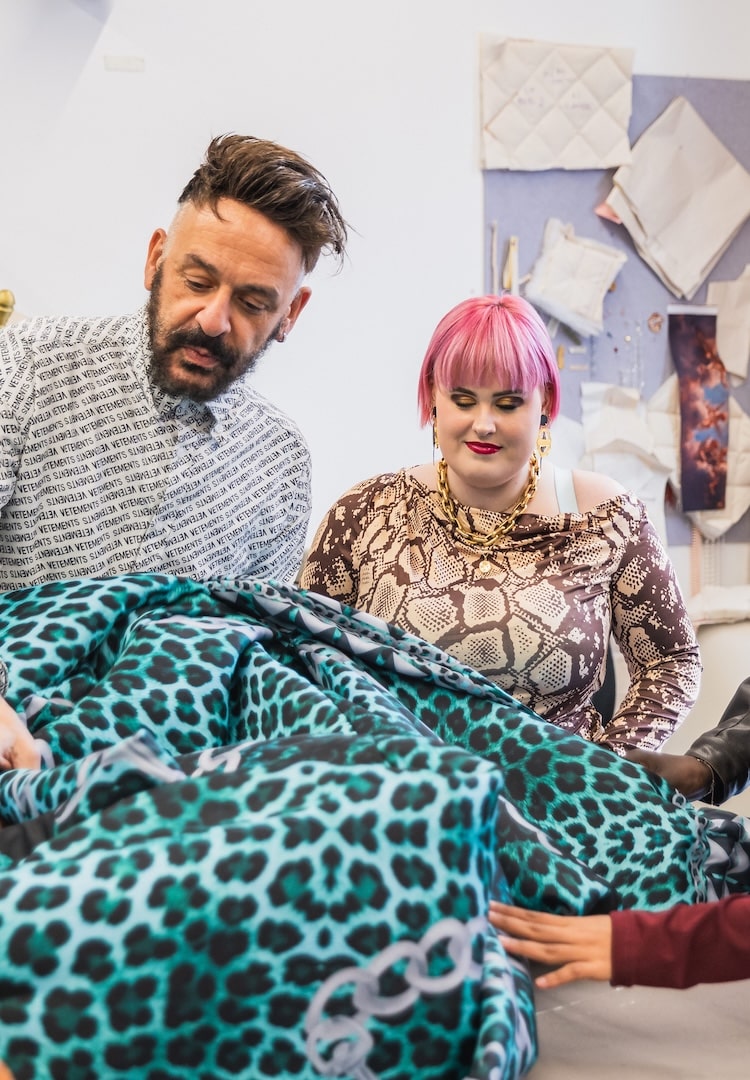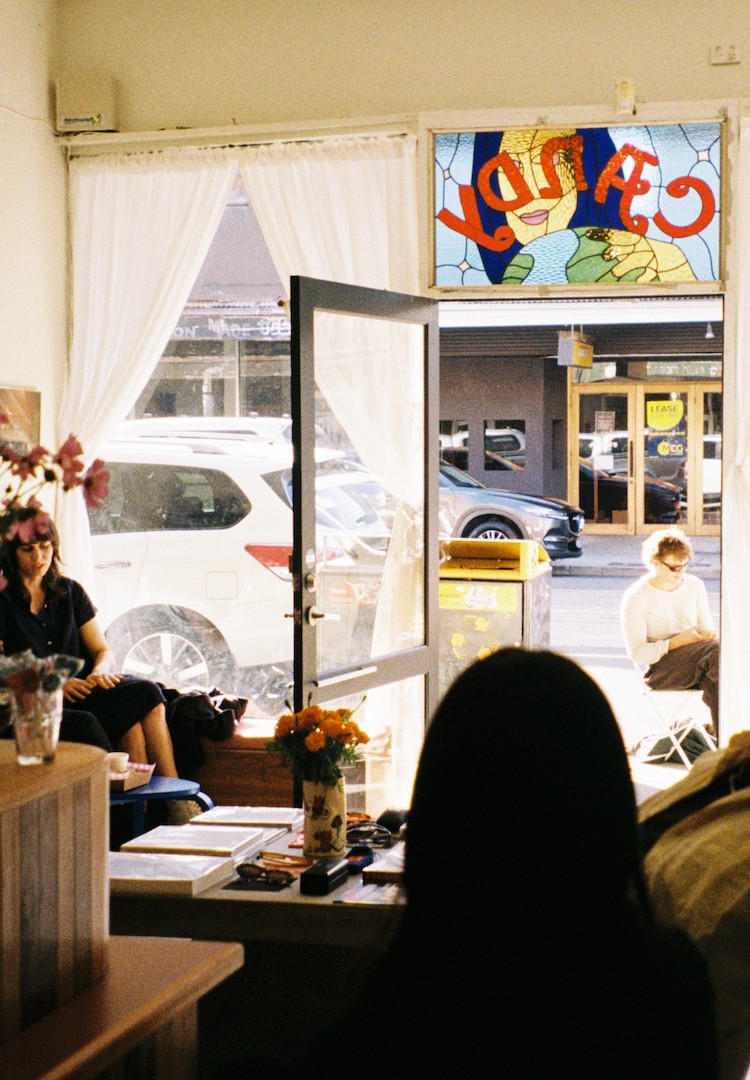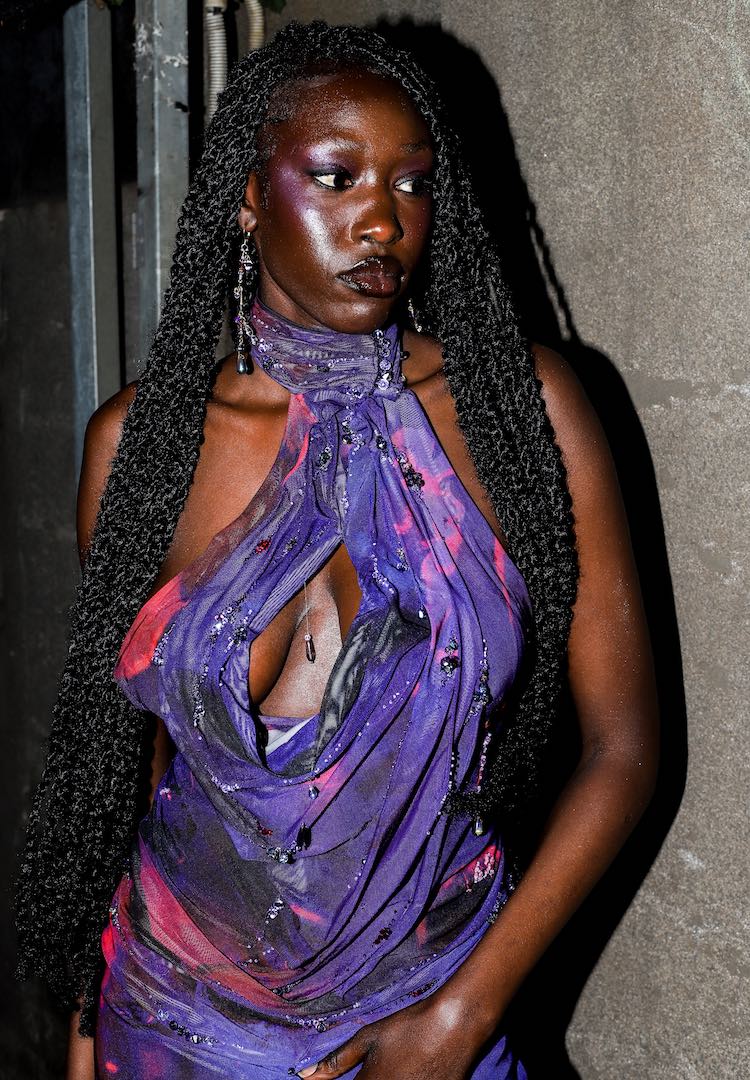We asked eight successful women what they got for their year 12 scores
IMAGE VIA @lizsunshine/INSTAGRAM
WORDS BY DAISY HENRY
“High school is big and formative and beautiful, but there’s a lot more coming so don’t get hung up on a handful of digits if you can help it.”
The day your high school results come can be charged with a certain kind of tension. When I got mine, I was overseas and didn’t have phone reception to receive the message. Once I resurfaced and saw it come through, I remember thinking how casual a text felt after a year of so much build-up.
For a lot of people, the pressure put on your year 12 score (known in Victoria as an ATAR) can be a lot. Whether you’re academically inclined or not, it’s difficult to escape the idea that your intelligence and worth are directly tied to a number.
Interested to hear how others navigate the world? Head to our Life section.
It’s not as though ATARs don’t serve any purpose – if you’ve worked hard and want to get into a particular course, then your score can play a key role. And it’s something you have every right to feel proud of. But for people who might be feeling disappointed at their score, it’s important to remember there are plenty of pathways to getting where you want.
Life lessons are always clearer in hindsight, particularly when you’re a few years into your career. Whether you’re a writer, founder, lawyer or photographer, everyone’s resume is bound to look a little different. So for some words of wisdom, I asked eight successful Australian women what year 12 scores they got and how it has impacted their lives.
Isobel Beech, author and content developer
I graduated in 2006 when it was still an ENTER score and mine was 66, which was a hair above a passing mark. In a way, I was embarrassed because my family was disappointed and my friends were quite high achievers but deep down, I don’t think I really cared. I was never able to make sense of high school, especially the academic stuff. I just couldn’t ever grab a hold of it, so I didn’t try that hard and when I very nearly failed it just felt like, of course.
I went and did half a year of a visual arts degree before realising I had no talent in it. After that, I worked in hospitality for ages. In my mid-twenties, I applied for Creative Writing at RMIT and in a freaky little twist of fate, I work at uni now and when I have time, I write books and screenplays.
I was never going to study law or medicine or engineering so my final score wasn’t going to be an issue, but it’s still surprising how little it comes up when you’re so terrified at the time that it’s the be-all and end-all. In the industries I work in, it’s about your portfolio and what you’re like on the job so that’s your academic transcript most of the time. High school is big and formative and beautiful, but there’s a lot more coming so don’t get hung up on a handful of digits if you can help it. And congratulations, you survived!
Dr Alice Hucker, clinical psychologist
I was super academic but also super social, so I was dedicated to both books and parties in year 12. I was at a private school in the east of Melbourne and looking back, I realise it was assumed that we would all go to university. There was definitely pressure to perform well academically and I didn’t question this at all.
In Year 10 I decided I wanted to be a gynaecologist because I wanted women and other people with ovaries and a uterus to feel really safe with someone. This then transitioned into a desire to be a clinical psychologist and a sex therapist, and to focus more on the emotional side of things. Despite my change in goals, I went at VCE as if I still needed the score to get into medicine. I worked hard and got a score of about 96.
In reality, I only needed a score in the 80s to get into the Bachelor of Arts (Psychology) degree I completed before my post-graduate qualifications in clinical psychology. Getting a good enough score to get into the university degree that defined my career was a very important outcome for me and I remain a lover of learning to this day. But I lost all sense of the practicalities of what score I needed and just became focused on getting the highest score I could. I don’t have huge regrets but I do look back and think, “Gee I could have chilled out a bit more and done a few less practice exams”.
Steph Claire Smith, co-founder and Chief Community Officer of KIC
From memory, my ATAR was around 58. I left a lot of my exams feeling average about how they went so I wasn’t expecting a super high score. To be honest, I was just having a competition with my brother and I wanted to beat him, but I think he got 58.6, so that was the only thing I was genuinely shattered about at the time. I wanted to model (which I was told by so many people was a dead-end job), so I started a part-time role at Boost Juice and signed with an agency. Fortunately, modelling quickly picked up for me.
Now, I’m the co-founder and Chief Community Officer of Kic, a health and fitness app, and co-host the podcast, KICPOD and KICBUMP. Since being diagnosed with ADHD I can look back and reflect on how the school system in general didn’t necessarily allow me to prove how intelligent I am.
If you’ve worked your absolute butt off and tried your best, that’s all you can do. You’ve controlled what you can, so whatever the score, be proud of your efforts. Don’t be ashamed of what comes, know you did what you could and there are almost always other ways to get where you want beyond your score.
Maggie Zhou, writer, podcaster and content creator
I graduated high school in 2016 and my ATAR was 99.6. I felt exceptionally proud but shocked! I worked really hard in high school and chose subjects I enjoyed (like English, media, studio art, business and psychology), but I can also recognise that the system suited my learning style. I went straight to uni, studying a double degree in communication design and media communications (specialising in journalism) at Monash University. I now work as a freelance writer and content creator, after working in-house at Fashion Journal and Refinery29.
A lot of pressure was put on ATARs at school and in hindsight, it was over the top. Still to this day, I think my stress levels peaked in school. There are truly so many pathways into a career; an ATAR score barely scratches the surface. I would say the most impactful part of getting a high ATAR score was the boost of self-confidence it gave me, as well as the Vice-Chancellor’s scholarship I received which helped support me financially while I was at uni.
If you’re about to get your ATAR results back, please know that they aren’t a true reflection of you or your intelligence. The world is big and an ATAR is just a number.
Liz Sunshine, documentary fashion and portrait photographer
I have no idea what my ATAR was. From memory, it was in the 80s but apart from enrolling in photography at uni, I’ve never thought about it or looked at it again. After high school, I took a year off and worked before studying photography. At the time, I remember repeated discussions with my parents about what I would do with my life. Though I started the degree after my year off, I didn’t complete it, opting for real-world experience.
Now I’m a documentary fashion and portrait photographer currently venturing into fine art, activism and writing. My clients include Vogue Australia (who I’ve worked with since 2009), Dior, Ralph Lauren, the National Gallery of Victoria and the City of Melbourne. The first decade of my career was spent as a professional photographer, going full-time at 23.
Though my dad thought I’d be an excellent accountant, I intended to pursue a creative career. Photography clicked quickly and I knew late into year 11 that I would pursue it. To me, ATARS are only necessary if they are the gateway to a particular course. We no longer live in a time when careers are chosen at the end of school and pursued for the rest of our working life. Understanding who you are doesn’t really happen until your 30s, and your career will become the sum of the things you have tried and worked consistently on over time.
Molly Griffin, Fashion Journal‘s Advertising and Partnerships Manager
I honestly can’t remember my exact ATAR but I think it was about 67. I was hysterical when I got it – I was shocked because my grades were good (mainly B’s) but I did subjects that got scaled a certain way which meant my score was way less than I was expecting.
I ended up taking a gap year and worked at my local pub for a year after high school. I’m from a small country town and this was the norm – most people needed to spend a year working to save up to move. After a year, I ended up moving and studying a marketing and communications degree, which I only got into because I was from a country town and I got a few bonus points for that which boosted my ATAR high enough to get into my course. Now I’m the Advertising and Partnerships manager at Fashion Journal.
If you want to be a lawyer or a doctor, your ATAR is probably important, but if you’re looking to get into a more creative industry, it’s absolutely not the end of the world. Either way, I’d suggest finding someone who is doing what you want to be doing and asking them if they would be open to chatting about their career.
Cassandra Kalpaxis, family lawyer
My ATAR was roughly 89 and when I received this mark, I remember feeling very surprised because I never considered myself book-smart. My teachers and parents told me in year 10 that I should’ve left and got a trade but that’s not what I wanted, so I worked hard and it paid off. I remember my dad crying when I told him my mark.
When I left school, I went into the firm full-time and went to university in the evenings. I did a double degree – a Bachelor of Law and Social Science. Now I’m a family lawyer who owns my own law firm supporting couples going through separation to divorce. I also run divorce retreats that support women who have left a marriage to empower them in this next stage of their life and workshops across the country educating children, men and women on safe and healthy relationships.
At the time, my ATAR held a lot of importance, but upon reflection, there are so many different pathways to pursuing your goals. When I did my HSC, many of these pathways weren’t available to me, so it took hard work to get into what I wanted. Now, as an employer, I also don’t place much importance on a candidate’s ATAR in the hiring process.
Christine Lafia, Suku Home’s founder and Creative Director
I honestly can’t remember my exact ATAR. My focus was always on my creative portfolio and networking, especially during my time studying Communication Design at university. I went straight to university for a year but decided to take a break. Looking back, I think taking a gap year between high school and university would’ve been beneficial – it would have given me time to really think about what I wanted to do.
Now, I own a lifestyle brand called Suku Home, where I take on roles like creative design direction and marketing. I’m a mix between a designer and an entrepreneur. At the time, my ATAR didn’t feel that important and it’s even less significant now in my industry. When I’m hiring at Suku, I don’t consider someone’s ATAR at all. Instead, I focus on their experience and, for design roles, the quality and creativity of their portfolio.
For those entering creative industries, focus on developing a diverse and authentic portfolio. Show that you can work in different styles while staying true to your own voice. Beyond that, remember that your work ethic, experience, and willingness to learn matter far more than a number. Every company has its unique way of doing things and university can teach you only a fraction of what you’ll learn on the job.
For advice on navigating ATAR scores, head here.


